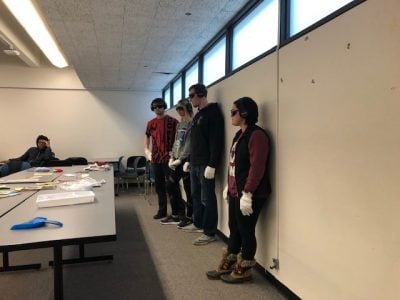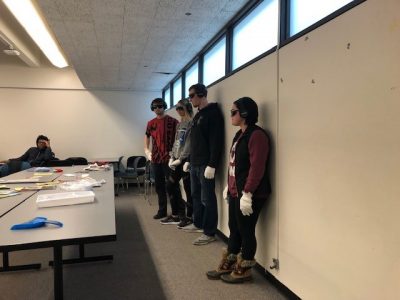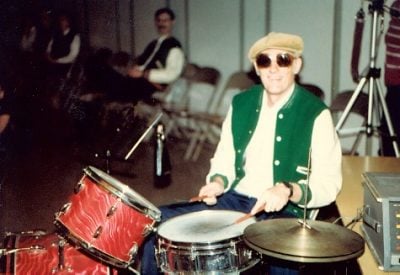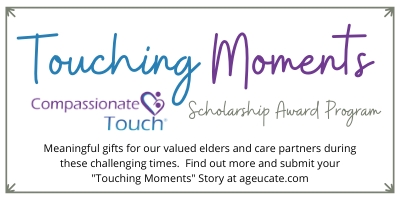Age-integration Study in Higher Education

 Students at Northern Illinois University in DeKalb, IL experience Dementia Live and share with classmates their feelings of frustration, anger, and anxiety.
Students at Northern Illinois University in DeKalb, IL experience Dementia Live and share with classmates their feelings of frustration, anger, and anxiety.
Psychology Professor Laura Carstensen discusses the need for an age-integrated society. Her "The New Culture of Aging" Ted Talk reveals that our ancestors in the 20th-century built a world exquisitely around the young.
Infrastructure to meet the needs of the young was appropriate and functional at the time. However, we now need to envision an exquisite society also built around the old.
Just as differently-abled individuals and families have pushed the barriers of accessibility, baby boomers will break down structural age barriers such as role opportunities in work and education.
The idea of an age-integrated society becomes clearer the older I get. The small writing on medication and food labels is frustrating. Consider also airline gate attendants that give fast and muffled directions over the intercom.
Dementia and an Age-Integrated Society
An age-integrated society must also adapt to the needs of persons with dementia. This segment of the population will grow to the point that it can no longer be ignored.
The Alzheimer's Association, Facts and Figures Report, projects 14 million people will live with this disease by the year 2050. It is the young that need to be the movers and shakers toward a more age-integrated society. However, it is incumbent upon wisdom-holders to provide them the information and education.
It is essential to expose students early to what it means to live with the symptoms of dementia. Additionally, how the symptoms should factor into a truly age-integrated society.
Higher education should consider involving students in age-integration studies. Also, learning about Dementia-Friendly Community movements should be a part of their learning objectives.
Exposing students to the study of dementia is vitally important. We need to expose young students to the diverse needs of older adults so that they can envision an age-integrated future. In doing so, we increase the chances that they will innovate and move us closer to a society that embraces the young and the old.
 Julie has worked in Aging Services for over 30 years and has been a Licensed Nursing Home Administrator since 1990. She is a Certified Master Trainer with the AGE-u-cate Training Institute. Through her company Enlighten Eldercare, Julie provides training and educational programs on elder caregiving to private and professional caregivers. She is an instructor and the Interim Director of Gerontology at Northern Illinois University and lives in the Chicago Northwest Suburb of Mount Prospect, IL.
Julie has worked in Aging Services for over 30 years and has been a Licensed Nursing Home Administrator since 1990. She is a Certified Master Trainer with the AGE-u-cate Training Institute. Through her company Enlighten Eldercare, Julie provides training and educational programs on elder caregiving to private and professional caregivers. She is an instructor and the Interim Director of Gerontology at Northern Illinois University and lives in the Chicago Northwest Suburb of Mount Prospect, IL.


